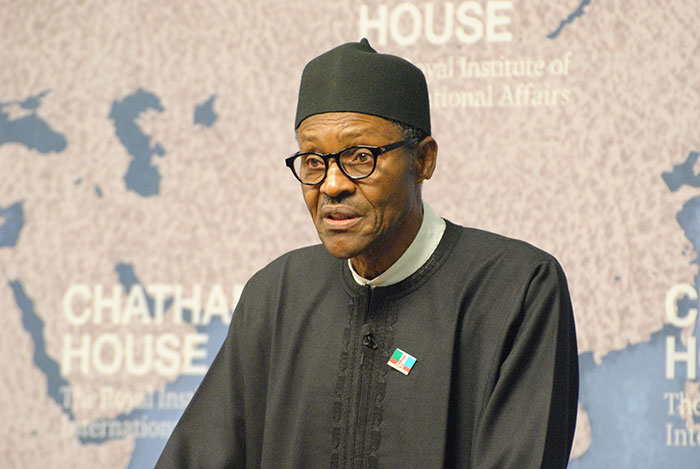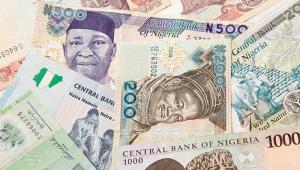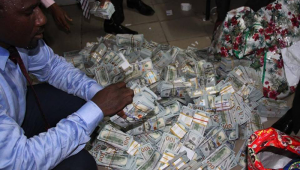web_muhammadu-buhari_16628699446_0cb8373084_o.jpg

Nigerian president Muhammadu Buhari. Credit: Chatham House
In his first budget as president this year, Buhari already put forward a substantial stimulus package of 6.06 trillion naira (at the time, worth $30bn) in the hope of saving Africa’s biggest economy from recession.
Now, a budget framework document for 2017 submitted to the upper house of Nigeria’s parliament yesterday, reveals planned spending of 6.866 trillion naira ($22.57bn) in 2017 – an 860 billion naira increase on last year’s record sum.
The document, known as the medium-term expenditure framework, will need to be approved by the senate before the final budget is submitted.
Critics have already voiced concerns about the country’s ability to foot this year’s spending bill, financed largely by a record deficit and substantial government borrowing, after the country slipped into its first recession in two decades.
The slump was largely due to the impact of low commodity prices on Nigeria’s oil-dependent economy, as well as shortfalls in production due to militant attacks on pipelines.
The proposals put forward to parliament assume an oil price of $42.5 per barrel, and production of 2.2 million barrels per day – compared to the 1.56 million it was managing in August.
It also expects an exchange rate of 290 naira to one USD – close to the current exchange rate, after substantial naira devaluation – and gross domestic product growth of 3.02%.
In July, the International Monetary Fund cut its growth forecasts for Nigeria. It expects 1.1% growth in 2017.
The framework also anticipates a large deficit, of 2.7 trillion naira ($8.6bn), compared to 2.2 trillion naira ($7bn) this year.
Revenues are also expected to increase by around 8% on 2016, according to the document. Around a third of that is expected to come from oil sources, while the non-oil sectors are also expected to bring in much more after being the focus of a diversification strategy.
According to the document, the country’s debt stock was 16.3 trillion naira ($61.45bn) at the end of June this year – equal to around 20% of the country’s 2015 GDP.
Buhari, who was elected in 2015 on an anti-corruption ticket, also announced yesterday it would sell two presidential aircraft as part of efforts to cut waste. Afterwards, he will be left with eight. Reportedly, some of these will also be handed back to the air force.












